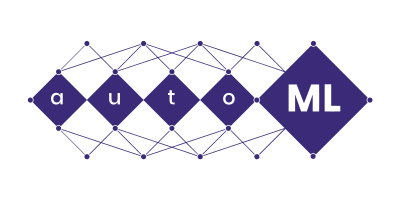Date: 09.09.2024, 15:30-17:00
Room: 26-25/105
Speakers
- Li Jiang, Microsoft
- Jeff Zheng, Microsoft
- Markus Weimer, Microsoft
Abstract
In this tutorial, we will provide an in-depth and hands-on guidance on Automated Machine Learning & Tuning with FLAML in Microsoft Fabric. FLAML is a fast python library for AutoML and tuning. Microsoft Fabric is an end-to-end analytics and data platform designed for enterprises that require a unified solution. In Fabric, data scientists can use flaml.AutoML to automate their machine learning tasks. We will start with an overview of the AutoML problem and our solution. We will then introduce the hyperparameter optimization methods and 60+ estimators empowering the strong performance of FLAML. We will also demonstrate how to make the best use of FLAML in Microsoft Fabric to perform automated machine learning and hyperparameter tuning in various applications with the help of rich customization choices, parallel training and advanced auto logging functionalities. At last, we will share several new features of our solution based on our latest research and development work around FLAML in Microsoft Fabric and close the tutorial with open problems and challenges learned from AutoML practice.
Motivation & Outline
As data becomes increasingly complex and voluminous, the demand for robust, scalable, and user-friendly tools for model selection, hyperparameter tuning, and performance optimization has never been higher. FLAML, a fast Python library for AutoML, and Microsoft Fabric, an advanced data platform, address these needs by offering a comprehensive suite of built-in machine learning tools. What sets FLAML in Microsoft Fabric apart is its unique support for visualization, auto-featurization, advanced auto logging capabilities, and a wider range of Spark models, distinguishing it from the open-source version of FLAML. Attendees of the AutoML conference will gain invaluable insights into leveraging these technologies to streamline their workflows, improve model accuracy, and enhance productivity. By mastering the integration of FLAML with Microsoft Fabric, participants can significantly reduce the time and expertise required for machine learning tasks, making this tutorial highly relevant and essential for advancing their work in data science and analytics.
In this tutorial, we will provide an in-depth and hands-on guidance on Automated Machine Learning & Tuning with FLAML in Microsoft Fabric. FLAML (by Wang et al., 2021) is a fast python library for AutoML and tuning. It started as a research project in Microsoft Research and has grown to a popular open-source library. It has accumulated over 3.7k stars and 4M+ downloads since its first release in December 2020. FLAML is notable for being fast, economical, and easy to customize. FLAML enhances the efficiency and productivity of machine learning and data science professionals, while delivering superior predictive performance in models. FLAML’s flexibility and customizability make it an invaluable tool for research and development. Microsoft Fabric is a comprehensive analytics and data platform designed for enterprises seeking a unified solutionIt provides data science capabilities that enable users to manage the entire data science workflow—from data exploration and cleaning, through experimentation and modeling, to model scoring and delivering predictive insights into BI reports. On Microsoft Fabric, users accelerate their model training workflows through the code-first FLAML APIs available through Fabric Notebooks. Microsoft Fabric supports tracking machine learning lifecycle with MLflow. FLAML experiments and runs could be automatically logged for you to visualize, compare and analyze. All the 60+ models trained with flaml.AutoML will be automatically recognized and logged for further usage. We will give a hands-on tutorial on (1) how to use FLAML in Microsoft Fabric to automate typical machine learning tasks and generic tuning on user-defined functions; (2) how to make the best use of FLAML in Microsoft Fabric to perform AutoML and tuning in various applications with the help of rich customization choices, parallel training and advanced auto logging functionalities; and (3) several new features of FLAML based on our latest research and development work around FLAML in Microsoft Fabric.
- Part 1. Overview of AutoML and FLAML in Microsoft Fabric
- Background of AutoML & Hyperparameter tuning
- Quick introduction to FLAML and Microsoft Fabric
- Use case of task-oriented AutoML
- Use Fabric notebook to author AutoML code with FLAML
- Use case of tuning generic user-defined functions
- Track and analyze FLAML experiments and models with mlflow
- Part 2. A deep dive into FLAML in Microsoft Fabric
- Use case of parallel training with spark and customizing estimators
- Use case of leveraging the advantage of auto logging
- Use case of advanced time series forecasting
-
- Part 3. New features on FLAML in Microsoft Fabric
- Use case of zero-shot AutoML
- Targeted HPO with constraints or multiple objectives, which commonly exist in real-world
deployments - Optimization of the in-context-learning of LLM models
Speakers
Li Jiang
Li Jiang is a senior software engineer at Microsoft, specializing in data science and AI/ML. He has extensive experience in developing and deploying automated machine learning systems, distributed deep learning/machine learning frameworks and industry-specific AI solutions. Li Jiang holds dual PhD degrees from Beijing Normal University and University Toulouse III, where his research focused on swarm intelligence. He has previously conducted tutorials on these topics for the PyData community and internal colleagues at Microsoft.
Jeff Zheng
Jeff Zheng is a principal software engineering manager at Microsoft. He leads the engineering efforts of Microsoft Fabric Data Science, including machine learning lifecycle tracking, authoring experience and data science runtime. Jeff graduated from Tsinghua University, majoring in software engineering.
Markus Weimer
Markus Weimer leads the data science and AI engineering team in Microsoft Fabric. Prior to this role, he has been an active researcher in machine learning, with a focus on systems for machine learning. He has taught tutorials at, among others, SIGMOD, ASPLOS and the machine learning summer school.

